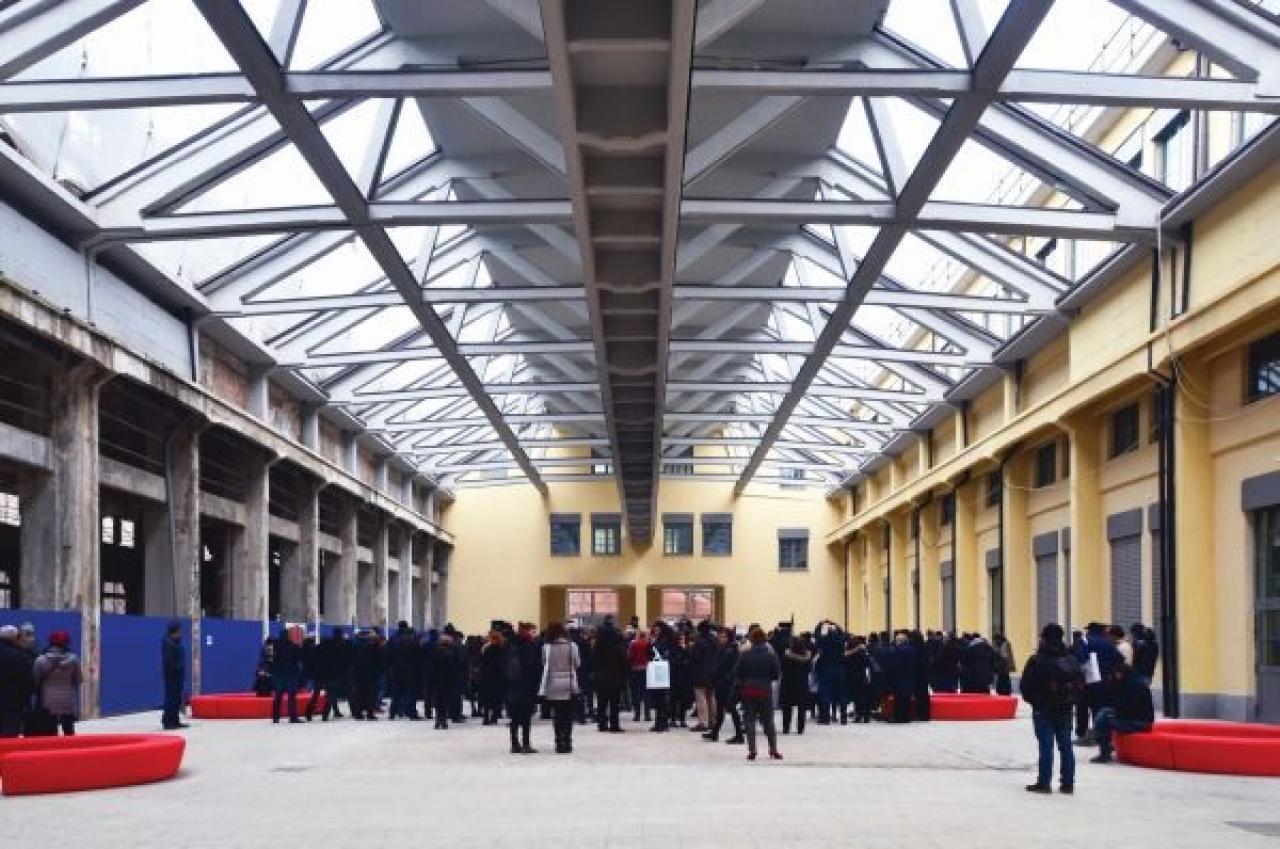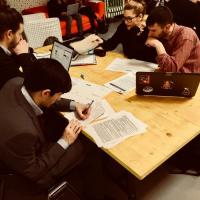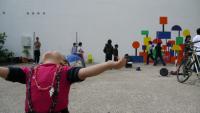
June 2018, by Valeria Vacchiano, Tiziana Eliantonio, Fabrizio Barbiero
Following the previous article about the critical situations of some Turin’s areas, we present some projects/initiatives that are trying to tackle some of the problems faced by the citizens and the local society.
PON METRO
Social Innovation Services: the main scope of this action is to enhance social inclusion in the poor areas of the City, promoting civic participation and co-producing of innovative services with a community welfare perspective.
In particular, the City of Torino will provide support for social innovation projects able to include civil society and to start urban regeneration processes in suburbs.
The City has launched a call for ideas last year for non profit sector. It offered technical and financial support for proponents of innovative ideas targeted to solving the arising social needs, that are able to create a blended value, both social and economic. FIGURE 1 – Torino Social Factory (Coaching activity)
A mentoring and coaching path is starting to support the development of ideas into projects, to enhance the technical and economic feasibility and to supporting the proponents towards the following grant application phase. The tutoring activities are conceived to foster the creation of changing communities.
Civic Crowdfunding Centre: the action has the aim to encourage new forms of collective funding to support all the local social and cultural actors in order to foster the matching between supply and demand of social innovation. The City intends create a Civic Crowdfunding Centre, where teams of social innovators gain new skills to implement and to fund their projects in an innovative way.
AxTO
The AxTO project has been selected in the framework of the call for urban periphery regeneration and safety, issued by the Presidency of the Italian Council of Ministers. AxTO has planned 44 actions (material and not-material), which are now being carried out through 235 widespread interventions on peripheries.
Public space: actions refer to the maintenance of infrastructures, especially school buildings (maintenance and accordance to safety regulations, courtyard regeneration), routes and pavements, street markets, sports facilities, social welfare facilities, art and cultural buildings.
Housing: Interventions refer to the renovation of flats and completion of Urban Renovation Plan in public housing buildings. Unused buildings will increase the public properties to cope with housing emergencies, fostering social mix and avoiding concentrated disadvantage.
Commerce and job opportunities: the renovation of the former industrial site INCET – which began during the past few years with the “Urban Barriera” Program – continues with the action of AxTO - entirely financed by private investments. INCET is supposed to become the main innovative pole of the City thanks to the presence of a service hub (traditional and digital manufacturing, co-working, support for third sector’s activities, socio-cultural activities, multi-religious dialogue), a platform where supply and demand for innovative entrepreneurship meet, an innovative centre on food topic (co-brewing, culinary incubator).
School and culture: the initiatives are focussed on fighting school dropout and supporting non-native Italian students; co-designing school courtyards, as a local resource; activating the ‘Library-bus’ – a moving multimedia library.
Socio-cultural production will be fostered by a public call addressed to non-profit entities. An innovative procedure will be set up for projects’ selection, organized in three phases: pre-selection, citizens’ online vote and formal commission evaluation.
Community empowerment and citizens’ participation: actions related to community empowerment and citizens’ participation are the core of the project.
Technical and social support activities, in collaboration with the Neighbourhood Houses network and through digital platforms, are supposed to generate innovative interventions supporting individual and community empowerment, social cohesion and integration, local safety, sense of belonging of public spaces. Collaboration among citizens and institutions will be enhanced.
CO-CITY (UIA – Urban Innovative Actions)
The City of Turin applied for the first call of UIA – Urban Innovative Actions (topic Urban Poverty) with the Co-City project, and was granted a 4.125.892 € ERDF contribution (covering 80% of the project’s total costs).
The partnership of the project is composed by the City of Turin (lead partner), the University of Torino (Department of Law, Department of Computer Science, Department of Culture, Politics and Society, Department of Economics), ANCI (Italian Association of Municipalities) and Cascina Roccafranca Foundation and the local network of Neighborhood Houses (nine public community centers located in different Torino Districts).
The CO-CITY project is intended to break the self-reinforcing circle of poverty, socio-spatial polarization and lack of participation. The development of an innovative, polycentric commons-based urban welfare will be supported, composed of generative communities centred on urban commons, low-cost service co-production, social mixing, and care of public spaces.
The workplan envisages the empowerment of project communities to create economic activities and inclusive growth in deprived neighbourhoods. It is supported by a toolkit consisting of a combination of:
- an unconventional legal framework, enabling the undersigning of collaborative pacts among citizens and the urban authority, in the framework of the new Regulation on collaboration among citizens and the City for the care, shared management and regeneration of urban commons (approved in 2016);
- an innovative ICT infrastructure for local social market and networking;
- management tutoring towards economic sustainability.

The City of Torino is one of the first cities in Italy that has adopted a Regulation on Urban Commons, by which active citizens (all subjects, single, informal groups, associations, etc.) can take care, co-manage or take action to regenerate the urban commons goods.
On April 2017 a public call was issued by the City for project proposals to be submitted by active citizens, with the support of the Neighbourhood Houses (“Case del Quartiere”), under 3 general categories: FIGURE 3 – Casa del Quartiere San Salvario
- dismissed public buildings;
- underused public spaces;
- care of public spaces and green areas.
115 project proposals were submitted and assessed by the City working group on urban commons, and 54 of them were admitted to the co-design phase, which is now ongoing. More specifically, according to the 3 above mentioned categories the admitted projects regard:
- 1 former industrial site, where structural renovation needs a large investment;
- 16 underused spaces in public buildings (12 of them are schools);
- 37 public and/or green areas.
The co-design phase is expected to lead to the signature of pacts of collaboration among citizens (associations, third sector or private) and urban authorities (and school managers when needed).
